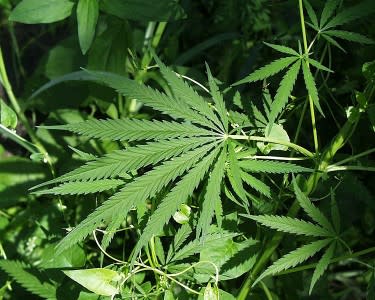Marijuana’s latest battleground is between District of Columbia and Congress
In the on-going battle between Congress and the District of Columbia over who runs the federal district, two fights over marijuana use have opened up some old constitutional wounds.
The District of Columbia was created by the Founding Fathers from land owned by the states of Maryland and Virginia, with the intention of setting up a safe, secure federal district. This week marked the 214th anniversary of the Residence Act of 1790, which established a location on the Potomac River for the District.
However, the Founders were very clear to specify that the District of Columbia wasn’t a state, and its citizens had limited rights.
Article I, Section 8 of the Constitution gave Congress the power to create a federal district to “become the Seat of the Government of the United States, and to exercise like Authority over all Places purchased by the Consent of the Legislature of the State in which the Same shall be, for the Erection of Forts, Magazines, Arsenals, dock-Yards, and other needful buildings.”
So for the residents of the District of Columbia, Congress became their de facto state government. The first residents had no say in national politics until the 23rd Amendment allowed general election results in the District of Columbia to translate into three electoral votes.
District of Columbia residents still don’t have an elected representative in Congress – the body that oversees the federal district’s laws and budget. In 1973, Congress gave some governing powers to city officials when it passed the District of Columbia Home Rule Act. The Act called for a popularly elected city council and mayor.
On an annual basis, there are arguments between city officials and Congressional members on an appropriations bill that funds part of the city’s expenses. House and Senate members have tried to attach conditions on the funding plan that restrict the city’s rights to enact laws and rules about guns, statehood, and abortion funds.
This fall, however, a big fight is brewing over several issue related to recreational marijuana use. The District of Columbia passed a medical marijuana law in 2010 that was implemented without congressional objections.
However, a law passed by city officials that decriminalized marijuana possession in the District went into effect on Thursday, over the definite objections of some members of Congress.
The new law sets criminal penalties for possession of one ounce of marijuana at a $25 civil fine. It doesn’t permit public marijuana consumption, and pot is still banned from any Park Service property.
Representative Andy Harris of Maryland has attached conditions in the current proposed federal budget that would block the use of any government funds in the District to promote decriminalized or legal marijuana. The House version of that bill was passed on Wednesday.
District Mayor Vincent Gray has publicly criticized Harris and House Republicans over the tactic. And the White House has condemned the GOP move.
“The Administration strongly opposes the language in the bill preventing the District from using its own local funds to carry out locally-passed marijuana policies, which again undermines the principles of States’ rights and of District home rule. Furthermore, the language poses legal challenges to the Metropolitan Police Department’s enforcement of all marijuana laws currently in force in the District,” the Office of Management and Budget said in a statement.
Complicating the issue are efforts underway to get a marijuana legalization proposal on the November 2014 ballot in the District. A group has submitted a petition to the D.C. Board of Elections, with 58,000 signatures, more than twice the number needed to put a vote on the November. The board will decide in the next month if the petition is valid.
The New York Times got into some of the details in the feud in a profile piece that ran days before decriminalization took effect.
“Marijuana has potent political symbolism in this city with a large black population because the vast majority of arrests here for possession is of blacks,” said the Times’ Trip Gabriel. “But at issue is more than marijuana. Infringements on Washington’s home rule hits an ever-sensitive nerve, setting off howls of ‘hypocrisy’ and ‘tyranny’ in a city whose license plates read ‘Taxation Without Representation.’”
Michael K. Fauntroy, a political scientist at Howard University, spoke about the controversy to the Times and said he believed if the Senate were controlled by the GOP next year, Congress would move to strike down the legalization effort. Congress would have the power of a joint resolution to overturn a District law.
Gray pointed out that such an action wouldn’t happen in Wyoming or Vermont, two states with fewer people than the District of Columbia.
Scott Bomboy is the editor in chief of the National Constitution Center.
Recent Stories on Constitution Daily
FDR’s third-term decision and the 22nd amendment
India commission rules for two women jailed for Facebook use
A birthday tribute to the Founding Father of gerrymandering
Plan to split California into six states a long shot at best


